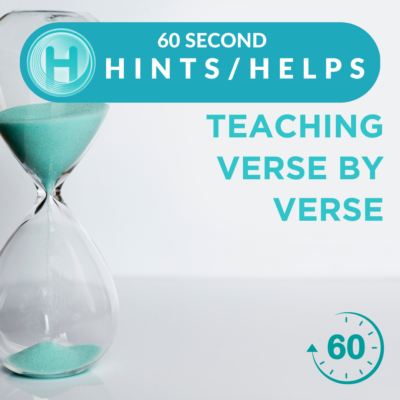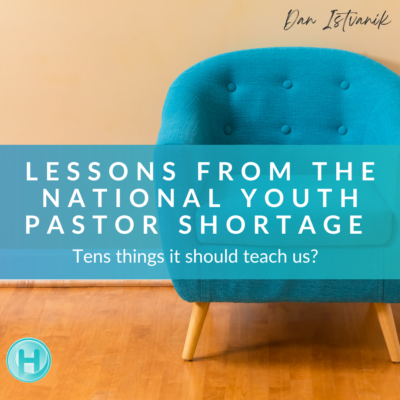Youth Ministry Hints, Youth Ministry Thoughts
Remember That Thing Called a Bible
Remember that thing called a Bible? Need a living example of why time in the Bible matters?
His name is Anthony Kelly, and he’s something of a modern-day ninja, able to literally catch high-speed tennis balls, paintballs, and arrows with his hands. Having broken over 50 World Records, he’s been a featured guest on Mythbusters,Stan Lee’s Superhumans and other shows that highlight the extraordinary things ordinary people can do.
The strange thing? Anthony Kelly would tell you his success comes down to spending time everyday opening and closing his hand as fast as he can in five-second increments.
How many do you think you could do? Ten times? Maybe 20?
His personal record is 85 in five seconds.
- What if the secret to seeing and catching the things that are shot at you boils down to a daily discipline that could potentially seem meaningless?
- What if students heard this concept in relation to the arrows that are shot at their hearts every day?
- What if spending time in the Bible to get to know Jesus personally is not a “have to” but a “get to?”
I recently shared this with our student ministry, daring them to consider Anthony Kelly as a metaphor for what God wants to do in our lives – not merely through our own grit but through spiritual grit that is formed by spending time with Him.
To be honest, I’ve not always painted a great picture of this for students when it comes to the Bible.
- I’ve presented the Bible as a should: Yes, I do think we should each read the Bible each day… but I don’t think presenting it merely as a “should” is healthy. If I’m just guilting others into opening it up, I’m hinting that reading Scripture is a chore they’re to resent on the front end instead of seeing it as a journey to know the One who loves them from every end. Sure, “shoulding” people into the Bible can produce “results” of them continuing to read the Bible- but the tone of how you got them there may keep them hearing the wooing Jesus whispers into their souls.
- I’ve presented the Bible as an encyclopedia: You’ve likely heard the acronym that the BIBLE is “Basic Instructions Before Leaving Earth:” Maybe, but I think not. While the Bible provides answers, it isn’t Google; while it offers historical records, it isn’t a sociological textbook; while it tells us everything we need to know about Jesus, it doesn’t tell us everything about Jesus. It’s as simple as we need it, yet not as simple as we want it. I can’t learn how to change the oil on my car by reading it, but I can learn how to treat the people who sell me the oil. Let your students see the difference, or else they’ll come to expect it to be their all-knowledgeable Siri instead of a way to surrender to the Spirit.
- I’ve presented the Bible as a habit:We may think of the Bible as something we’re to read in a quiet space or while listening to worship music. Or as a box, we’re to check when we read a slice of it each day. Meanwhile, Joshua 1:8 offers the value to “Keep this Book of the Law always on your lips; meditate on it day and night, so that you may be careful to do everything written in it. Then you will be prosperous and successful.” Reading the Bible plants seeds of wisdom was can call on wherever you’re at as a way to better understand what Jesus is doing around you.
Remember Anthony Kelly? Imagine having a bunch of arrows fired at you; only you could have him stand next to you to catch and drop them. You wouldn’t have to be on the defensive by yourself.
- What if we presented the Bible to students as a way of opening and closing on Jesus?
- What if, in doing so, they’d better face the arrows fired at them with Him by their side?
When students first start reading the Bible, most don’t know where to start. Most give up on it for one reason or another, missing out on its blessing. Hosea 4:6 warns, “My people are destroyed for lack of knowledge.”
But again, knowledge for the sake of knowledge creates Pharisees instead of Christ-followers. It’s like a couple that goes on a date merely to say, “We went on a date. So, we’re good.”
Redeeming time in the Bible is less about asking, “How do we get students to open it?” and more about asking, “How do we help students to open up to Jesus?” It’s relational, heartfelt and deeply personal.
- Invite them to read who God says they are: John 1:12, John 15:15, Romans 5:1, 1 Corinthians 6:17-20, Colossians 2:9-10
- Invite them to read who God says He is: Genesis 17:1, Exodus 3:14, Psalm 46:10, Isaiah 28:16, Jeremiah 23:23-24, Mark 14:62, John 1:1-2
- Invite them to read who God says a church can be: Matthew 16;18, Acts 1:8, Romans 12:5, 1 Corinthians 11:23-26, Ephesians 2:20-22, Colossians 3:16, Hebrews 10:24-25
What do you think? How can we do this?
 Tony Myles is a ministry veteran, conference speaker, teaching pastor, and author who leads a next-generation movement and leadership development at Riverside Church in Big Lake, MN. He’s also raising up future leaders as an adjunct professor at Crown College… and he really likes smoothies.
Tony Myles is a ministry veteran, conference speaker, teaching pastor, and author who leads a next-generation movement and leadership development at Riverside Church in Big Lake, MN. He’s also raising up future leaders as an adjunct professor at Crown College… and he really likes smoothies.




